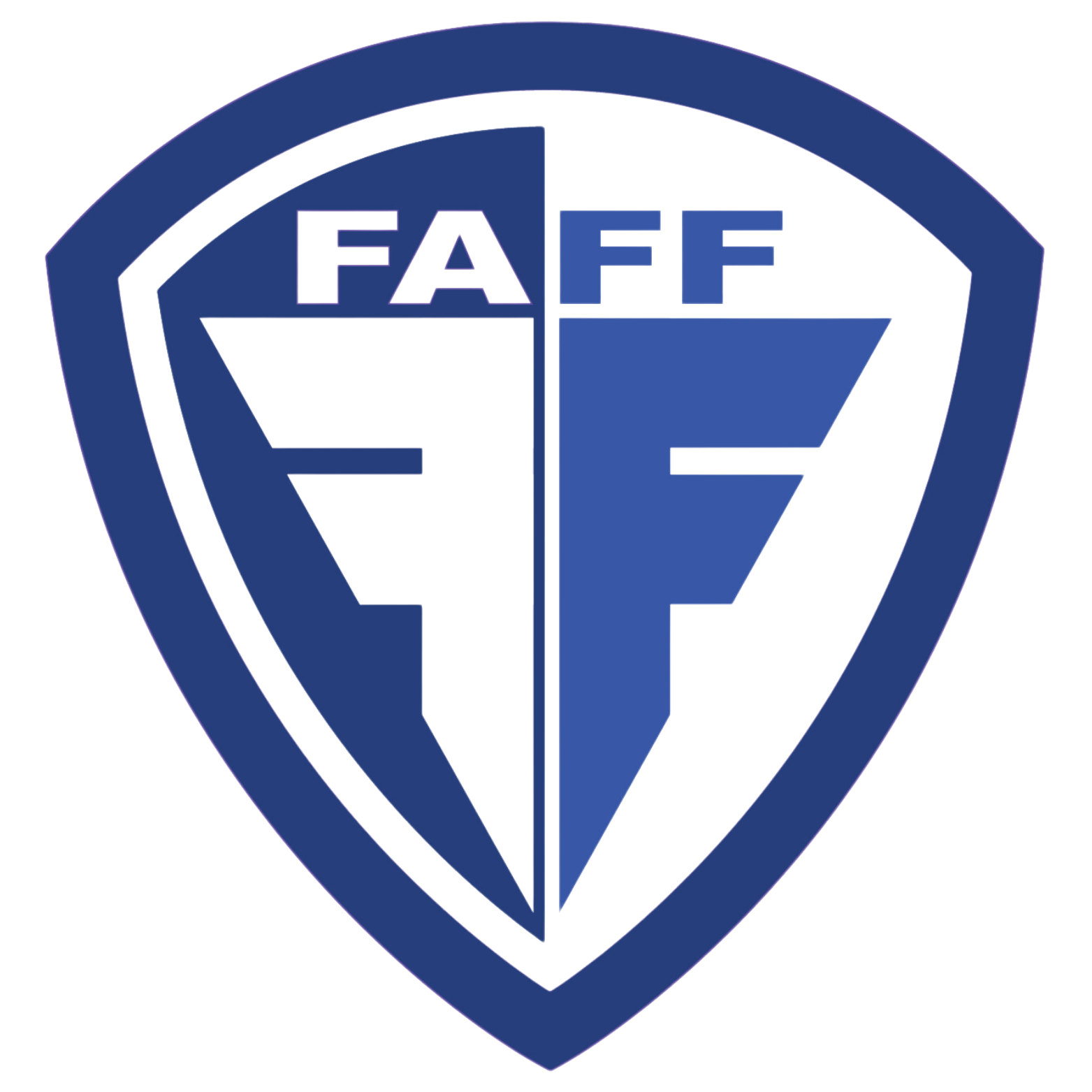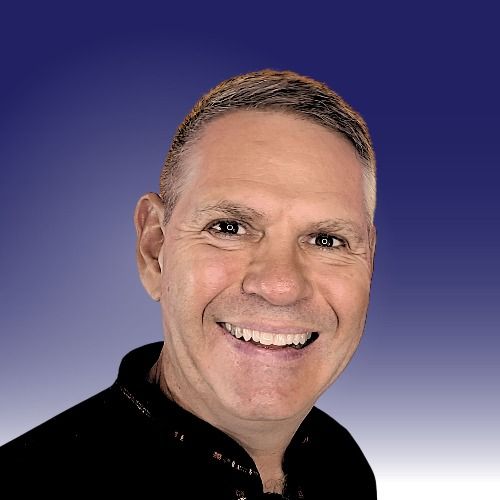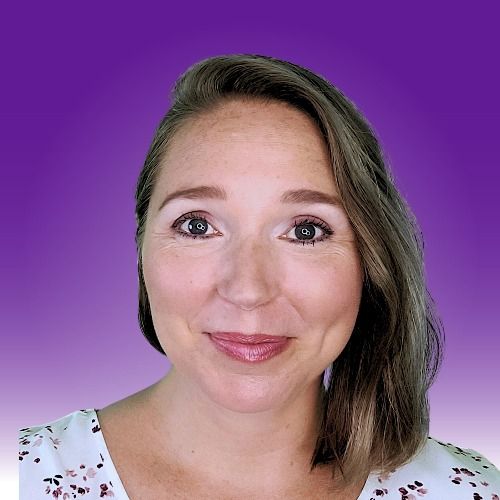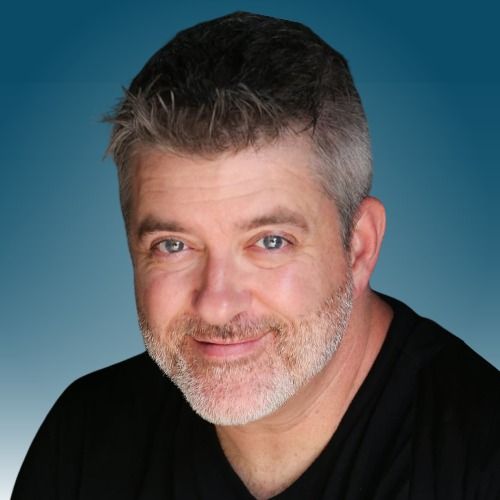Episode 54
Film Scoring Tools, Software, and Advice for Aspiring Composers with Zachary Horner
Episode 54 - Film Scoring Tools, Software, and Advice for Aspiring Composers with Zachary Horner
In this episode of the Faith and Family Filmmakers Podcast, hosts Jaclyn and Geoffrey Whitt interview Zachary Horner, a film composer known for his work on projects like 'Disciples in the Moonlight' and 'The Thorn'. Zachary discusses his favorite genres to compose for, his favorite film composers, and his favorite instruments. He also provides insights on the tools and software he uses, and shares advice for aspiring composers on working with budgets of various sizes. Furthermore, Zachary highlights the importance of communication and collaboration in film scoring, detailing his experiences working with directors and producers. He ends the interview by offering tips on marketing oneself as a film composer and where listeners can find and hire him.
- Welcome and Introduction
- Discussing Favorite Genres
- Favorite Film Composers
- Challenges in Composing for Comedy
- Favorite Instruments and Their Emotions
- Tools and Software for Composing
- Gear Advice for Aspiring Composers
- Collaborating with Directors
- Upcoming Projects and Contact Information
Zachary Horner is an American Composer, Orchestrator, and Producer and has been working in the industry for over a decade. His musical education began early in childhood as a choirboy and enrolled in private music lessons. He has a Master of Arts in Orchestration for Film from ThinkSpace Education (University of Chichester).
In addition to avoiding celery at all costs, Zachary has been hard at work over the years creating timeless melodies, alarmingly realistic sampled mock-ups, and rich orchestration for hundreds of projects ranging from promotional to feature films, documentaries to apps, producing artists to short films.
Zachary on Instagram: https://www.instagram.com/zachary_horner/
Zachary on Facebook: https://www.facebook.com/zachary.horner.composer
Zachary on IMDb: https://www.imdb.com/name/nm8066578/
Faith and Family Summer Screenwriting Bootcamp: https://www.faffassociation.com/screenwriting-bootcamp
The Faith & Family Filmmakers podcast helps filmmakers who share a Christian worldview stay in touch, informed, and inspired. Releasing new episodes every week, we interview experts from varying fields of filmmaking; from screenwriters, actors, directors, and producers, to film scorers, talent agents, and distributors.
It is produced and hosted by Geoffrey Whitt and Jaclyn Whitt , and is brought to you by the Faith & Family Filmmakers Association
Support Faith & Family Filmmakers Our mission is to help filmmakers who share a Christian Worldview stay in touch, informed, and inspired. If you would like to assist with the costs of producing this podcast, you can help by leaving a tip.
Enter the Faith & Family Screenwriting Awards festival
Faith and Family Screenwriting Academy: https://www.faffassociation.com/
Script Notes and Coaching: https://www.faffassociation.com/script-services
Copyright 2024 Ivan Ann Productions
Transcript
You're listening to the Faith and Family Filmmakers Podcast.
Jaclyn:My name is Jaclyn.
Jaclyn:Geoff is here with me.
Jaclyn:And today we have Zachary Horner,
Jaclyn:I want to ask you, I'm going to start this out with asking about genre.
Jaclyn:Okay.
Jaclyn:So what is your favorite genre to work with?
Zachary:Oh boy.
Zachary:Um, don't feel like I've had just a ton of experience in a variety of genres, but in the genres that I have worked in, I really enjoyed, actually, this latest film that I've worked on.
Zachary:It's fresh on my mind, maybe, but, uh, Disciples in the Moonlight has been a great project.
Zachary:It's just been, a good challenge in a number of ways.
Zachary:It's, uh, I guess the genre would be loosely, heist, um, and it's just been a great project to kind of spread my wings a little bit in, in a multitude of different music styles, such as, uh, uh, action, um, mystery and suspense.
Zachary:I've had a good bit of suspense in this film.
Zachary:Um, and then tragedy, gotta love tragedy.
Zachary:I, wholeheartedly, and unashamedly admit as a composer, I find great pleasure in making people cry.
Zachary:Uh, it's just kind of the, the icing on the cake for me.
Zachary:Um, so, that's been a really fun genre so far.
Zachary:I would say that's that's been my favorite so far.
Geoff:I'm recognizing that the question, about genre is quite different as a film composer than if somebody were to ask you as a musician, uh, for example, what's your favorite genre?
Geoff:Because the things you just listed were, um, emotions and, uh, quite different than a typical answer regarding genre.
Zachary:Well, I'm glad you didn't ask me my favorite genre in music because I would just have to call Switzerland on that because I listen to all kinds of music.
Zachary:I love, uh, just the soundtrack genre in general is not really a genre because from one soundtrack to the next you can go in wildly different directions, uh, emotional wise.
Geoff:You mean film soundtracks?
Zachary:Yes, yes, film
Zachary:soundtracks.
Geoff:So who's your favorite film composer?
Zachary:Oh, that's also a very unfair question.
Zachary:Uh, that is just, uh, too hard to narrow down, but I will, I will narrow it down to maybe, uh, a top couple or a few, um, names that come to mind instantly are James Newton Howard.
Zachary:I love his music, um, aspire to write similar to him in many ways.
Zachary:I'm not exactly like him, obviously, because I, I have my own, um, Unique voice, but I love his music.
Zachary:Um, I grew up on Howard Shore.
Zachary:find that as fundamental to all of my writing.
Zachary:Um, I love John Williams.
Zachary:I don't write like John Williams, but I do, I guess, find his music inspiring and, in a way it challenges how I think about certain, certain ways to write music.
Zachary:Um, Let's do one more.
Zachary:Um, Michael Kamen, actually.
Zachary:I love Michael Kamen's music.
Zachary:yeah.
Zachary:Those are a top few.
Zachary:I could go on, but
Jaclyn:Do you have a genre you do not enjoy composing for?
Zachary:Um, I would say I've not thoroughly enjoyed comedy, um, when I've had to do comedic scenes.
Zachary:I don't know, I've just not found that supernatural.
Zachary:I'm, uh, I'm not the funniest guy on the block, so maybe that has something to do with it, but I just, I've never thoroughly enjoyed comedy.
Jaclyn:Okay.
Jaclyn:Well, that's really good to know.
Jaclyn:So I'm curious within that, cause like, as I'm thinking through, okay, what are the different aspects of these different genres that could be drawing on you?
Jaclyn:So I know for myself, my favorite instrument, especially if there's like soundtracks and, um, theme songs, anything with a French horn, I'm in.
Jaclyn:I love French horn.
Jaclyn:I played it for six Sears.
Jaclyn:It's my favorite.
Jaclyn:There's just such a richness.
Jaclyn:Uh, so a lot of my music, I don't care what song I was recording for myself.
Jaclyn:I'm going to fit a French horn in there somewhere.
Zachary:Yep.
Jaclyn:Do you have a favorite instrument that you like to work with and include in your music?
Zachary:Yeah, that's, that's also a really tough question.
Zachary:for a variety of reasons.
Zachary:I like different instruments, but, um, I would say that, I love the bass clarinet.
Zachary:And the viola.
Zachary:Um I love the richness.
Zachary:I would say, if anything, maybe the viola even more than the bass clarinet.
Zachary:But I love the rich tones of both of those instruments and, and their unique voices.
Zachary:Because, particularly with the viola, if anyone has ever been in an orchestra, you know there are a lot of viola jokes, uh, viola player jokes, and, I, I get it.
Zachary:The viola just, it's, when it's well written, um, the unique character it can bring to a piece, its unique, range is just beautiful.
Zachary:Uh, I love, I love writing for viola.
Jaclyn:Do you have certain instruments that you equate with certain emotions?
Zachary:Um, in a way, yeah, I could see, uh, How like the French horn, it's going to instantly evoke, a majestic sound.
Zachary:It's going to evoke, a heroic sound.
Zachary:Um, whereas the Celeste might invoke a very.
Zachary:Magical sound.
Zachary:Um, so yeah, yeah, there, there are a lot of different instruments that can be kind of known for a very specific sound.
Zachary:They can be used for other purposes, but
Jaclyn:Yeah, I'm thinking even like for comedy, for myself, when I make videos, like to promote things that I do and whatever.
Jaclyn:And a lot of the time I like to use comedy because I think that it engages an audience well.
Jaclyn:And so whenever I'm looking for some music to put on it, I'm like, okay, give me something with pizzicato strings.
Jaclyn:Like
Zachary:yeah, yeah,
Jaclyn:that's going to help create that, that sense of comedy and, you know, the silliness and stuff.
Jaclyn:So, yeah,
Jaclyn:I love that stuff.
Geoff:Since we're talking about instruments and sounds, um, we talked in the first portion of the interview about, using samples.
Geoff:for those who are interested, why don't you go a little bit into what you use, uh, regarding your, sound banks or samples or even your software.
Zachary:Yeah.
Zachary:Um, so as a disclaimer, this portion of discussion is, is very subjective.
Zachary:Of course, music is in general, but, um, this is highly preferential.
Zachary:Uh, but, I use Logic Pro, uh, as my digital audio workstation.
Zachary:And, actually I always have, I've never tried anything else.
Zachary:Um, Well, I take that back.
Zachary:Actually, when I was getting started, I was working with Reaper.
Zachary:that's a free software.
Zachary:and that was, that was great too.
Zachary:But Logic has been my, my doll now for a long time.
Zachary:and, uh, I love it.
Zachary:I love The workflow within it, and, um, it's just very intuitive for me.
Zachary:and then as far as samples, I mean, we could be here for a long time talking about all the different libraries that I've got, but, um, if I had to kind of.
Zachary:highlight a few specific ones.
Zachary:Um, I love working with cinematic studio series.
Zachary:Um, Alex is great.
Zachary:he's the, the producer there, creator and producer and, his samples are just really beautiful.
Zachary:cinematic studio strings and woodwinds and brass.
Zachary:they even have a decent piano.
Zachary:I, I wouldn't say it's my favorite piano, but it is a, it is Decent piano.
Zachary:Um, actually layer it with other pianos so that it kind of creates its own sound.
Zachary:I'm waiting on their percussion, library that's yet to be released, but I love working with, with all of their stuff.
Zachary:but in addition to that, Spitfire, uh, has.
Zachary:Some great libraries.
Zachary:I use, a number of libraries from them, a lot of ethereal stuff, London Contemporary Orchestra, and, um, 8DO as well, another company that I've recently kind of found and would love to get some more of their stuff, Uh, I'm not even sure I know how to pronounce it, but I think it's Strezos or Stravos, uh, sampling company, and they make some really beautiful ethnic instruments, that, I would love to get my hands on a little bit more, but those are a few, uh, highlights for my software, um, as far as mixing and mastering, that's a whole nother topic, but Ozone, by iZotope is a great, great start, for, for getting into mixing and mastering.
Zachary:So,
Jaclyn:Nice.
Jaclyn:So for, let's just say if there's somebody that's listening and they're thinking like they want to start getting into this, I want to ask you this question in two parts.
Jaclyn:One, I want to ask for somebody who has little to zero budget, what would you recommend for them to get started?
Jaclyn:And then for somebody that has a budget and they're serious, they actually want to pursue this and they have a bit that they can actually start, um, you know, they can buy great stuff and go from there.
Jaclyn:What are your two recommendations?
Zachary:Um, and just to be sure on your question, this is for composers or is this for, like from a director's perspective for hiring a composer?
Jaclyn:As a composer.
Zachary:um, well, I've always had experience with Apple products as far as computers are concerned.
Zachary:for music production, I think it's great, uh, but I know guys that work on PCs and rave about them as well.
Zachary:So that's also subjective, but if I were to advise anything, it'd just be from experience.
Zachary:Apple has been great, as far as finding products that are.
Zachary:Um, you know, on a budget, I started off with a used laptop.
Zachary:That I found on probably at the time, probably on Craigslist, , that's how long ago it was.
Zachary:Um, and, uh, I would recommend just finding yourself a good, uh, laptop with, you know, more than just a little bit of ram if, get as much ram as you can, and a as big of a processor as you can on, on a laptop, that you can afford.
Zachary:Um, and then as far as other software.
Zachary:There are actually, nowadays, there are a number of software libraries that are specifically designed at aspiring composers that don't have big budgets because they're free or very, very inexpensive, and, um, They're not the best sounds in the world, but they're good.
Zachary:Um, so, I would recommend someone getting into some of those.
Zachary:I think Spitfire might have one, and a number of other instruments.
Zachary:I'm sure you could Google them.
Zachary:Uh, as far as anything else.
Zachary:I mean, that's, that's really the biggest thing right there is, uh, a decent little laptop and, some free software.
Zachary:those are really the two most important things.
Zachary:At some point you will need a, audio interface, to Improve your music with better speakers and such, um, because, you know, at some point you'll need, well, I guess starting off, you'll definitely need a decent pair of headphones.
Zachary:Um, but those, I mean, those are the really, the 3 biggest things are some software, decent laptop and some headphones.
Zachary:Of course, you can find a keyboard really cheap as well, but that's, you know, You have to have a keyboard, uh, but
Zachary:you
Zachary:can, you can get those fairly
Zachary:inexpensively.
Jaclyn:Yeah, but it's just a controller, right?
Jaclyn:Like for when it, when it's a keyboard, you're not using the sounds from the keyboard.
Jaclyn:You're just using the information that you're putting into the keyboard to transfer and the samples will create the sound.
Zachary:Correct.
Zachary:Correct.
Zachary:And, uh, to be perfectly honest, I still use a MIDI controller myself.
Zachary:It's not a very expensive model.
Zachary:Um, and, uh, it's, it's worked perfectly fine.
Zachary:I mean, yes, I could get something more expensive, but, you
Geoff:Yeah,
Geoff:it would probably even be USB, right?
Geoff:So, uh, for someone starting, it wouldn't even have to have the MIDI connections, that would come with a separate box or, uh, audio interface or
Geoff:something.
Zachary:Yep.
Zachary:That's correct.
Zachary:Yep.
Zachary:headphone cable, and that's
Zachary:it.
Geoff:so
Jaclyn:All right.
Jaclyn:and
Jaclyn:so for somebody that has some money to put into it, then what would you be like, okay, here's how you can set yourself up, to have what you need and run with it.
Zachary:Yeah.
Zachary:Um, for those that have a budget, I have been very satisfied with this second Mac Studio that I bought.
Zachary:I bought, one when they first came out.
Zachary:But I didn't get one big enough.
Zachary:And that's the, that's the only catch with Mac studios is once you buy one, they're like an iPhone.
Zachary:You can't pop the hood and replace RAM or anything like that.
Zachary:So, I bought a second one and it has been phenomenal.
Zachary:but I spent a lot of money on it.
Zachary:It's, it's got almost 200 gigs of RAM and, yeah, huge processor and all that.
Zachary:But, would highly recommend Mac studios nowadays.
Zachary:Um, they're, they're a great machine, but at the same time, uh, the M2 processor has just really pushed boundaries that we weren't expecting, in a way, and so even the M2 MacBook Pros are great.
Zachary:Um, very, very powerful machines.
Zachary:I know guys that work with their entire studio.
Zachary:Running off of a single laptop instead of, you know, an actual desktop computer like what we used to do.
Zachary:And so, if you have the money, I would recommend a MacStudio or a MacBook Pro.
Zachary:Kind of depends on your preference, but both are great machines.
Zachary:Um, I will say with as many software libraries as I'm running nowadays, another vital.
Zachary:I would highly recommend is Vienna Ensemble Pro, just because, um, when you're loading up my template is hundreds of tracks at one time.
Zachary:So when you have that many instruments, uh, and some of them with a lot of RAM, you're going to need Vienna Ensemble Pro to kind of.
Zachary:go to bat for you, uh, with your, with your digital audio workstation.
Zachary:And so that's highly recommended for me as well if you've got a little bit of budget.
Zachary:Um, honestly, being Ensemble Pro is not all that expensive, but it's a very, very valuable piece of software.
Zachary:Um, other than that, I would spend money on good speakers, a good audio interface, and you know, as many good libraries, high quality libraries as you can find, um.
Zachary:But I mean, beyond that we can, we could spend a whole day talking about hardware and other software
Zachary:and
Jaclyn:Yeah.
Jaclyn:No, that's yeah.
Jaclyn:I just, I wanted to get a good sum up of like, you know, give people something to think about.
Jaclyn:They can maybe take some notes and then they can start doing research from there and, you know, see if all of those things it's like, is that going to work for what they specifically want to do?
Jaclyn:But I think it's a great starting point at least so that they can see like, okay, this works for Zach.
Jaclyn:So I'm going to start here and look into it for
Zachary:Yep, Yeah.
Zachary:And the moment you type in YouTube, uh, you know, music studio set up, what do I need?
Zachary:You're gonna find a bazillion different results and it can be overwhelming.
Zachary:So, yeah, I try to.
Zachary:When I am asked that, I try to boil it down to the meat and potatoes,
Geoff:Yeah, I'd like to ask question that leads somewhere else with regards to film scoring specifically it's different than just writing music Because you are part of a collaboration of something bigger.
Geoff:Let's talk about that for a few minutes the process of working with producer or director, other parts of the team that you work with, that you take your instructions from, uh, or your notes when you need, to make, corrections or, or adjustments.
Zachary:yeah.
Geoff:Share some of that.
Zachary:Well, working with a director, um, is a skill set in and of itself because, it doesn't matter how good of music you write, if you can't communicate with another director, effectively, then it serves no point to write good music.
Zachary:So, um, communication is an extremely valuable asset and skill set to develop.
Zachary:And that's unique because that's a process that you develop from project to project and from director to director.
Zachary:Um, simply because I can work with one director and we've learned one another's communication style.
Zachary:And when he says this, I understand what he means.
Zachary:Uh, when he uses these words or this word to describe an emotion, um, I can translate that instantly to a lot of different things and we can work very well together.
Zachary:And then I go to the next project and it's a different director.
Zachary:And even if we've worked together, um, the communication style is going to be different.
Zachary:And, it's not necessarily daunting, but it's not easy either to, to learn that skill set of communication.
Zachary:Um, To add insult to injury, with music and film being so subjective, you can run into issues even with people that you are very seasoned with.
Zachary:you've worked together with them a lot.
Zachary:You come up on a new project and because things are so subjective, um, sometimes you can be caught off guard by what seems to be a breakdown in communication or understanding.
Zachary:and that's why the foundation this skillset has to be built on patience and, um, humility.
Zachary:just because, it can be very frustrating at times and easy to fall into, you know, why are they not understanding what I'm trying to say here?
Zachary:I'm, being very clear in my own mind of.
Zachary:You know, this is, what I think the music needs to do here.
Zachary:And, there's a difference of opinion or there's a breakdown in communication.
Zachary:So, just being humble and, patient in communicating with a director and producer is just vital, because otherwise I'm going to want to work with you.
Zachary:So, um, those are two bits of information I can really quickly think of.
Jaclyn:It's making me think actually of, the word vision, right?
Jaclyn:Like you have to come together to have one vision.
Jaclyn:And so sometimes that, you know, takes some time and patience and work and, you know, communication to figure that out.
Jaclyn:but it's so necessary because Two visions is like division, so that's not what we want, especially when we're trying to create to one project, one movie, like a person's going to watch the movie.
Jaclyn:We don't want them to have emotions on one side for the acting and the directing and everything.
Jaclyn:And then like, they've got these emotions from the music telling them to feel something else.
Jaclyn:And it's like, what, what am I supposed to be feeling right now?
Zachary:Right.
Zachary:Exactly.
Zachary:Yeah,
Zachary:Yeah,
Jaclyn:so earlier when we were talking, you were sharing how it's important to start out small and, you know, to collaborate with other aspiring, people in the film industry.
Jaclyn:And, like, that's fantastic, but what do you do next?
Jaclyn:Let's say you've got those projects under your belt, you know, like you want to start getting those bigger projects.
Jaclyn:How do you put yourself out there to market yourself as a film composer?
Jaclyn:composer?
Zachary:Well, I wish there was someone else in my seat telling me how to do this part because this is This is, Something that I struggle with myself.
Zachary:Um, a good friend of mine.
Zachary:Justin Barber is is very good at marketing and and He's very natural at it We're always talking about how I need to be doing more.
Zachary:but, I would say kind of in a similar way to even aspiring composers is just getting out there and meeting new people, um, whether that's at festivals or conferences or, you know, film groups in your local area.
Zachary:Or, you know, whatever that may be, meeting new people is just always great.
Zachary:there comes a time where word of mouth from projects you've worked on previously comes into play.
Zachary:And, I will say that has begun to happen for me.
Zachary:Um, that isn't exclusively what I need to be doing.
Zachary:but, uh, Returning clients or word of mouth is definitely a huge, benefit at some points in your career later in your career, uh, for getting new work.
Zachary:but other than that, having a great website, uh, being accessible online for people to find you easily, is, uh, is another great way.
Zachary:even social media, putting your music out there for people to hear, or even, doing you know, brief, little social media blurbs where you just, you know, you're talking about a music project you're working on and you, Share a little clip of it or something, you know, even still meeting new people and, um, word of mouth and then having a great web presence.
Jaclyn:And I guess Also, the, the aspiring directors and actors and, cinematographers that you could be working with in the beginning, I mean, they're working on pursuing their own career, and, you know, in the future, as they also improve and take on larger projects, they could remember you from, you know, oh yeah, back when I did this short film, I worked with this guy that he really got on The emotion I was looking for.
Jaclyn:I need to find that guy and work with him again.
Jaclyn:Like, you know, stuff like that can happen too, right?
Jaclyn:Because if we're all growing,
Jaclyn:like we're all going to improve, we're all going to, you know, advance in our career.
Jaclyn:And, uh, you know, so hopefully that's where those relationships come in.
Jaclyn:Um, you know, the word of mouth is great I, I think that there's something to be said for, You know, remembering the people that you work well with and, you know, as each person grows, coming back to work together again could be, uh, like a really great opportunity and a lot of fun.
Jaclyn:And like, I've seen so many movies where I'm like, oh, hey, I know the person that wrote and produced that and, uh, I see that they're working with the same people.
Jaclyn:Like we, we like to work with the same people.
Jaclyn:So yeah.
Jaclyn:And, and I like what you were saying too about being patient and humble because you're, you're creating that, atmosphere for collaboration and being easy to work with.
Jaclyn:Like, I think one of my goals, as a writer, I want to be easy to work with, because I know that writers can easily get removed from a project, so, you know, my goal is to be easy to work with, I want people to know that they can trust me, that I'm going to, you know, be honest with them, that I'm not just going to be like a pushover, however, at the same time, I want them to know that I'm going to be, like, I'm all in with collaborating.
Jaclyn:I want to get something great.
Jaclyn:And like, I don't need to push my own agenda.
Jaclyn:Uh, it doesn't matter if I'm the one that came up with the idea and wrote the story.
Jaclyn:If there's a producer that's producing it and he says, well, I want to go this way with it.
Jaclyn:And so I need this to be rewritten.
Jaclyn:Like I need to be on board with that.
Jaclyn:Right.
Jaclyn:And that's, part of how that works.
Jaclyn:so yeah.
Jaclyn:Thank you so much.
Jaclyn:That was, definitely really important insight that the patience and humility for the process of collaborating.
Jaclyn:And I, I actually, I hadn't thought of it before with, I mean, music does bring so much of the emotion, and so to work closely with, uh, is it the director that you work with or who do you work with when you guys are figuring out you know, how do you want the music to play out in certain scenes?
Jaclyn:Who do you work with?
Zachary:The director.
Zachary:The director is always going to be the one that has the vision for the film, specifically for the music and such.
Zachary:Not to say that the producers don't have insight preferences.
Zachary:That's very often the case.
Zachary:But usually the director is the one that kind of spearheads that.
Jaclyn:Okay.
Geoff:Why don't you tell us, before we finish, you mentioned a couple of movies, The Thorn, tell us where we can watch that, or our listeners can find it, and also, uh, I'm not sure if the new one is out yet, you said it's fairly recent, Brett Varvel's, Disciples in the Moonlight?
Geoff:Um, that's still coming up?
Zachary:Yeah.
Zachary:That's, we're, we're actually working on trailers right now.
Zachary:That'll be, uh, they'll be putting trailers out in theaters in, I believe it's April and then, um, it'll be releasing in July.
Jaclyn:Okay.
Jaclyn:So by the time that this interview is out, then people should start hearing about it.
Jaclyn:It'll be very relevant at the time.
Zachary:Yeah.
Geoff:about The thorn
Zachary:yeah, the thorn.
Zachary:if you go to the thethorn.
Zachary:com.
Zachary:if you go there, their links will have, access to like the film version, as well as if you are interested in going to see the play live.
Zachary:Uh, in your local area, they'll have tickets for that.
Zachary:They do tours in the spring and the fall.
Zachary:Um, so, yeah, I would highly recommend going to see The Thorn live.
Zachary:I mean, the film is great.
Zachary:Uh, it's got my music.
Zachary:some of the play has some of my music.
Zachary:they didn't keep Everything from the film soundtrack in the actual live play, but, um, the live plays is spectacular.
Zachary:It's it's something to see.
Zachary:but going to their website, the thorn dot com is, uh, is where you can find all that information.
Geoff:Cool.
Jaclyn:And how can people hire you?
Jaclyn:Where can they find you to hire you?
Jaclyn:to
Zachary:I would say the best way to find me is through my website.
Zachary:Actually, Zachary Horner music dot com.
Zachary:It's got, all of my social media links and email, contact page, all that good stuff.
Zachary:You can hear audio samples.
Jaclyn:Perfect.
Jaclyn:We'll
Jaclyn:have that all in the show notes.
Zachary:awesome.
Geoff:Well, Zach, it's been great having you today and, uh, hearing those insights.
Geoff:you are actually our first, composer,
Geoff:uh, that we've interviewed for our podcast.
Zachary:That's great.
Zachary:Well, I'm glad to have offered some insight and, uh, it's been great to talk with you guys and, do this interview.
Zachary:Thanks for having me on.
Jaclyn:Thanks for coming.
Geoff:Bye bye.
Zachary:Alrighty, buh bye.





